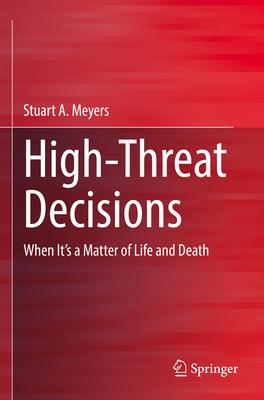High-threat decision-making is intrinsic to many domains and carries an individual, organizational, and social responsibility. Tactical and incident commanders make decisions in the high-threat law enforcement context of hostage rescue, armed barricaded suspects, and armed suicidal individuals that can result in successful or catastrophic outcomes. This book describes the experiences and methods of making decisions in these types of extreme environments.
The presented research addresses learning strategies that could better prepare leaders for information processing in any high-threat domain, while optimizing speed and accuracy in decision-making. This volume emphasizes the role of adaptive expertise in decision-making, and explains how mental models of recurring patterns are created and retrieved, and why they are necessary for effective situational assessments.
This book is ideal for police commanders and executives, emergency response managers, first responders, and criminology researchers. It is also well-suited for professionals seeking further information about improved high-threat decision-making strategies.











